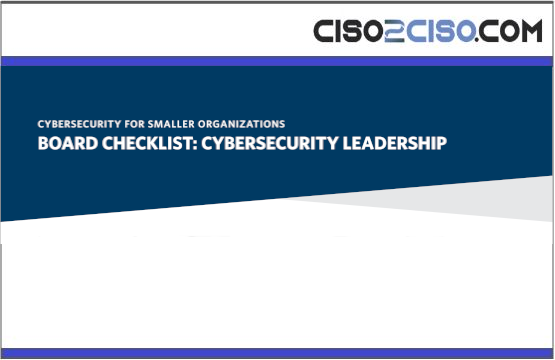Rate this post
CYBERSECURITY FOR SMALLER ORGANIZATIONS
The document outlines essential practices for effective cyber risk governance within organizations. It emphasizes the importance of a comprehensive checklist for boards, which includes ensuring regulatory compliance, assessing cyber exposure, and establishing incident response plans.
Key areas of focus include:
- Board Oversight: Boards should delegate responsibilities clearly, define risk tolerance levels, and regularly review third-party risks to maintain a robust governance framework.
- Organizational Culture: Continuous training in cybersecurity is crucial, alongside fostering a culture of accountability where all employees understand their role in protecting the organization.
- Data Protection: Organizations must implement stringent security policies, conduct regular risk assessments, and ensure the protection of customer data to mitigate potential breaches.
- Workforce Development: Identifying skill gaps, promoting internal training programs, and enhancing external recruitment efforts are vital for building a competent cybersecurity workforce.
Overall, the document serves as a guide for organizations to strengthen their cyber risk governance and enhance their resilience against cyber threats.
Views: 12




















































